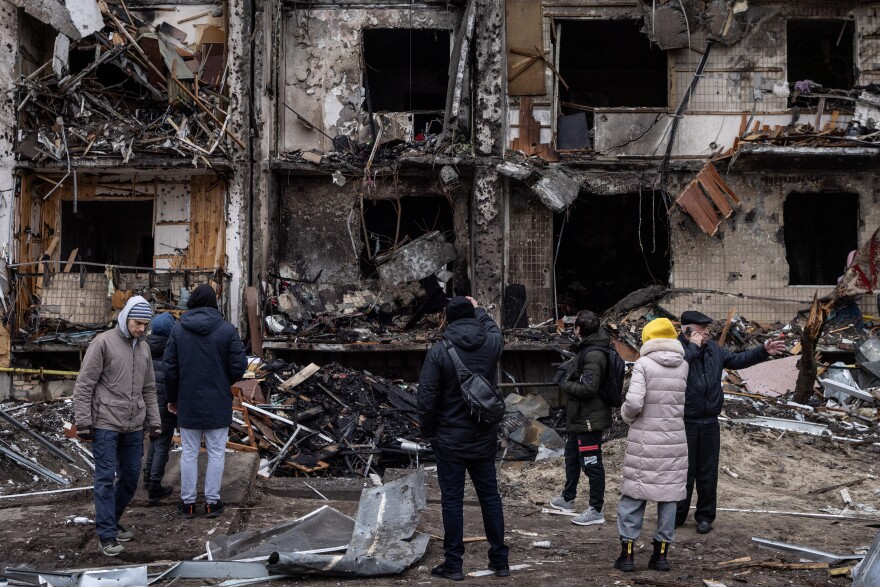When tensions began to rise along the border of Russia and Ukraine earlier this year, the war had already been going on eight years. Yet, few anticipated what would happen next.
Ukrainian forces have been fending off Russia’s full-scale invasion of the nation since late February. In that time, millions have fled the country, tens-of-thousands have been killed, and cities have been leveled. Russia’s objectives remain uncertain, but as the smoke begins to clear in parts of the country, evidence of a genocide has emerged.
"As a journalist in Ukraine, it is a marathon, not a sprint. It is a lot of making sure that the I's are dotted and the T's are crossed, that we understand what is going on from the people who are in the areas that are most affected, that we have line of communication to independent sources, to government sources, we keep in touch with our colleagues in the United States," says Julian Hayda, a former Lake Effect producer and Ukrainian-American journalist working in Ukraine for NPR.
He says there were many surprises that came with the Russian invasion of Ukraine for people living there.
"I think few people in Ukraine expected the war to have these moments of shock and awe. There was a fine line, I think, for some people of denial versus optimism. I think a lot of people in Ukraine are impressed with how the armed forces have responded," says Hayda.
>>> Read more coverage from reporters in Ukraine
At the beginning of this year, Ukraine had a population of about 45 million people. Now, at least 10 million of those people don't have the same lives that they once had.
Over the last month and half, Hayda has reported all over Southeastern Ukraine and in Kyiv. He's also visited a few different towns in western Ukraine and he says every city is responding to this war somewhat differently.
There's a timelessness to war, Hayda acknowledges. He recounts how he rode a train on the same tracks that his grandparents took to concentration camps and labor camps. These are the same escape routes that people are now taking, as the Russian army continues its assault.
"[War] is modern, because we have social media, and we have all these different ways of understanding how things happen. Of course, it happens in other parts of the world. It happens in Ethiopia, it happens in Yemen. And those are all conflicts with their own dynamics. And war always catches people by surprise. And that's almost the tragedy of it," says Hayda.
The uncertainty of war has made it difficult for many Ukrainians to plan for the future. Hayda says it's hard to speculate on what will happen next, in part because Russia's objectives are unclear.
"There's as much humanitarian aid going on as is possible and safe. But there is so much uncertainty that if you ask anybody in Ukraine these days, what they're expecting, they will effectively say, on one hand, 'nothing.' And on the other hand, they say, 'well, I expect to have a nice walk in the park because it's springtime, and the tulips just started blossoming.' Even as air raid sirens are wailings, " says Hayda.







